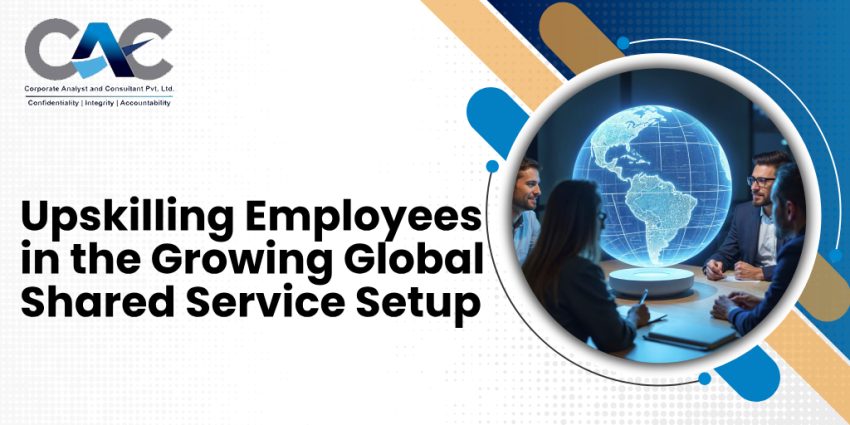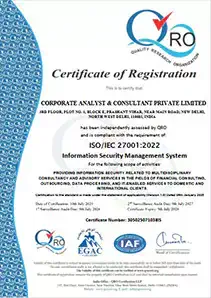CAC offers experienced experts who provide cutting-edge shared service solutions. In the hyper-connected world of business, global shared service centers (SSCs) have now come into strategic focus as a means of organizations centralization of processes, as a means to improve operational activities and cost reduction. As the SSCs continue wedding their potential to offer more intricate and high worth services – like data-analysis, to process-restructuring, the necessity of highly-skilled, adaptable employees, has never been as big as it is nowadays. The time when upskilling of employees was optional has gone; now, upskilling is necessary to keep up with the changes in technologies and improve continuously. The following are four major reasons as to why employee upskilling is imperative in the success of the shared service setups.
Empowering Global Business Services Centers Through Employee Upskilling
Adapting to Automation and Digital Transformation
The emerging technologies such as automation, artificial intelligence, and advanced analytics are transforming the Global Business Services on an essential level. The workers that used to deal with the monotonous, transactional missions must learn to communicate and read smart digital systems. This upskilling enables them to shift towards more analytical and value-based work instead of labor-intensive and manual tasks, including data insights interpretation or the supervision of automated processes. The shift not only makes individuals more efficient but also allows SSCs to remain competitive and ready to stay ahead. Through upskilling, organizations can guarantee that their employees are ready to adopt the use of new technology, be more innovative, and become strategic in advancing businesses and not operational efficiency.
Building a Future-Ready Workforce
The global SSCs are rapidly developing, shifting their focus from basic support services to the production of top-value services, such as financial strategy, data mining, and robotic process automation (RPA) administration. Organisations require skilled labour that is future-oriented to absorb the new requirements. Upskilling and continuous learning programs are used to make the employees attain technical, analytical and strategic skills that are needed to fill these higher skills based positions. This is a timely strategy that guarantees a robust development of flexible talent that addresses arising challenges and captures new opportunities. The SSCs can bring in a better resilience, innovation, and value creation as they are building a future-ready workforce that can be aligned to the long-term future of business in terms of talent strategy.
Enhancing Employee Engagement and Retention
Companies that prioritize the professional growth of their people are luring an increasing number of employees. Companies show their dedication to people investments by making meaningful upskilling opportunities, which raises employee engagement and commitment. This forward-thinking focus on learning reduces turnover, attracts the best talent, and builds a more motivated, productive team. Upgrading employee skills promote overall service excellence and business outcomes along with self-confidence and career prospects. Employees are motivated to learn new functions, be innovative in their job, and contribute more to the achievement of the business. Ultimately, promoting lifelong learning becomes a key driver for employee retention and satisfaction.
Strengthening Global Collaboration and Agility
Global Business Services operate in a variety of nations and cultures, they need teams that can work together easily and swiftly adjust to changing business priorities. Employees that receive upskilling in areas like agile project management, digital collaboration tools, and cross-cultural communication are more equipped to collaborate across time zones and boundaries. A workforce with these skills facilitates better service delivery, worldwide coordination, and quicker, more adaptable reactions to market needs. Organizations may create a culture of tolerance and adaptability by cultivating these abilities, which will make navigating difficult global issues simpler. In the end, upskilled teams play a crucial role in facilitating organizational agility and sustained performance in a fast-paced corporate setting.
Conclusion
In a fast-evolving business environment, upskilling is vital for global shared service centers (SSCs) to stay competitive and resilient. By continuously investing in employee development, organizations can drive innovation, boost engagement, and build a future-ready workforce capable of supporting strategic growth on a global scale. CAC offers comprehensive solutions designed to empower Global Business Services centers with expert-driven upskilling programs.

















